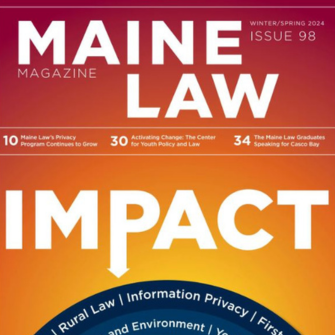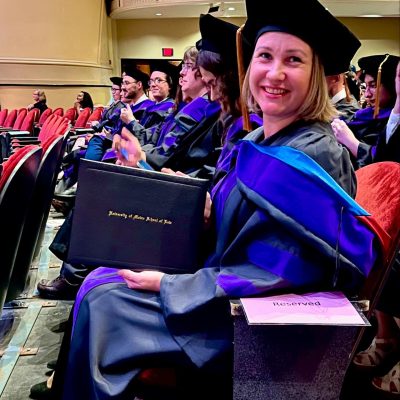PORTLAND, ME — The Refugee and Human Rights Clinic (RHRC) at the University of Maine School of Law recently received a transformative gift of a half million dollars from Leslie and Wells Person of Austin, TX. The commitment, which spans five years, will support a faculty position in the RHRC and additional resources and experiences for students.
Leslie Person, originally from Maine, said she has long admired the RHRC for the outsized impact it has regionally and nationally. In addition to its day-to-day role of representing and advocating on behalf of refugees and asylum seekers settling in Maine, the RHRC is a leader in immigrant rights protection. In 2022, in conjunction with the ACLU of Maine and the Immigrant Legal Advocacy Project, they published a report exposing systemic and pervasive bias throughout the Boston Asylum Office. The report garnered national attention and calls from lawmakers for reform. Additionally, clinic faculty and students routinely travel to Laredo, TX to support asylum seekers and, more recently, have begun trips to Mexico City, Mexico, to assist asylum seekers through Know-Your-Rights and individual consultations before they make the dangerous journey to the U.S./Mexican border.
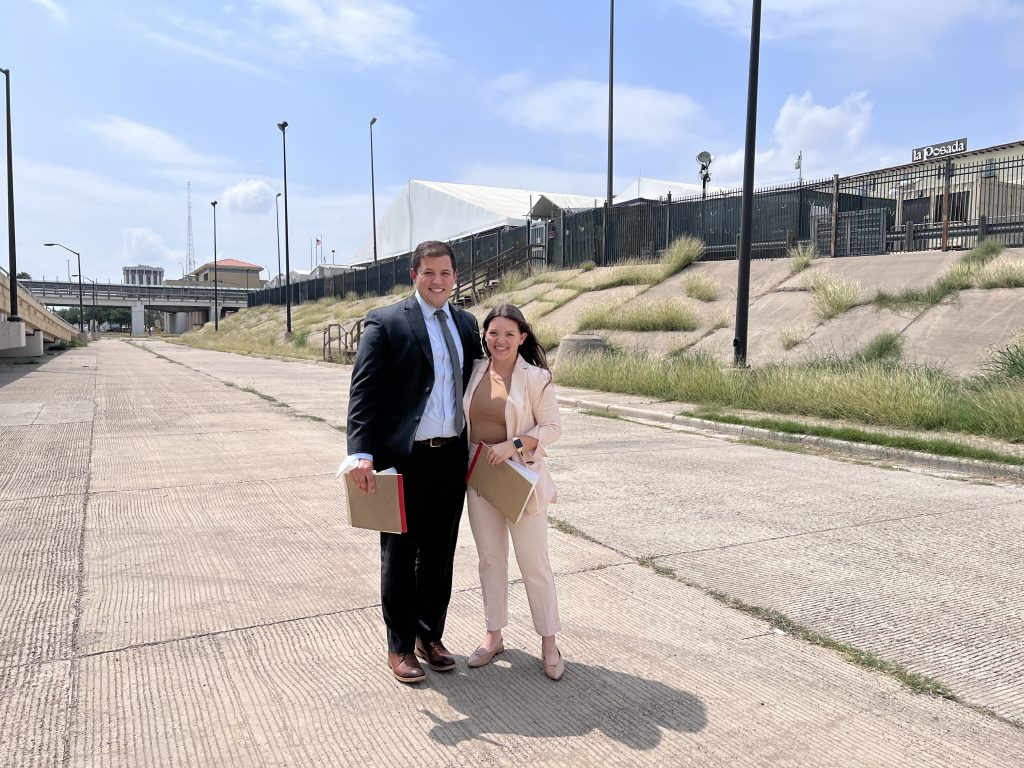
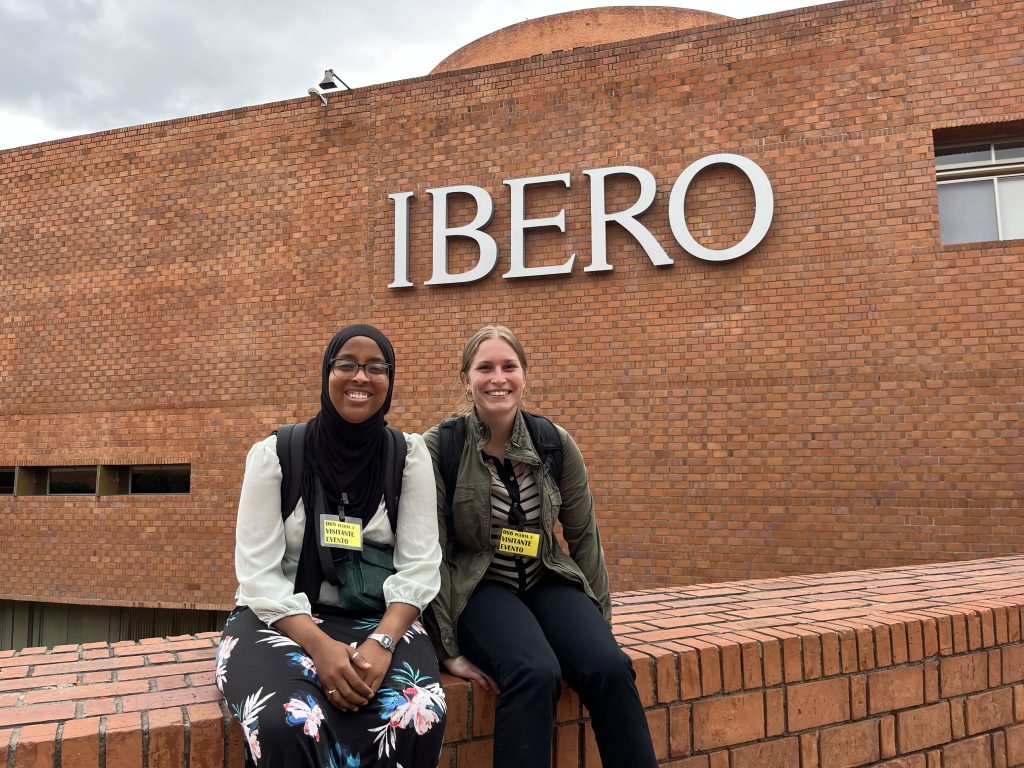
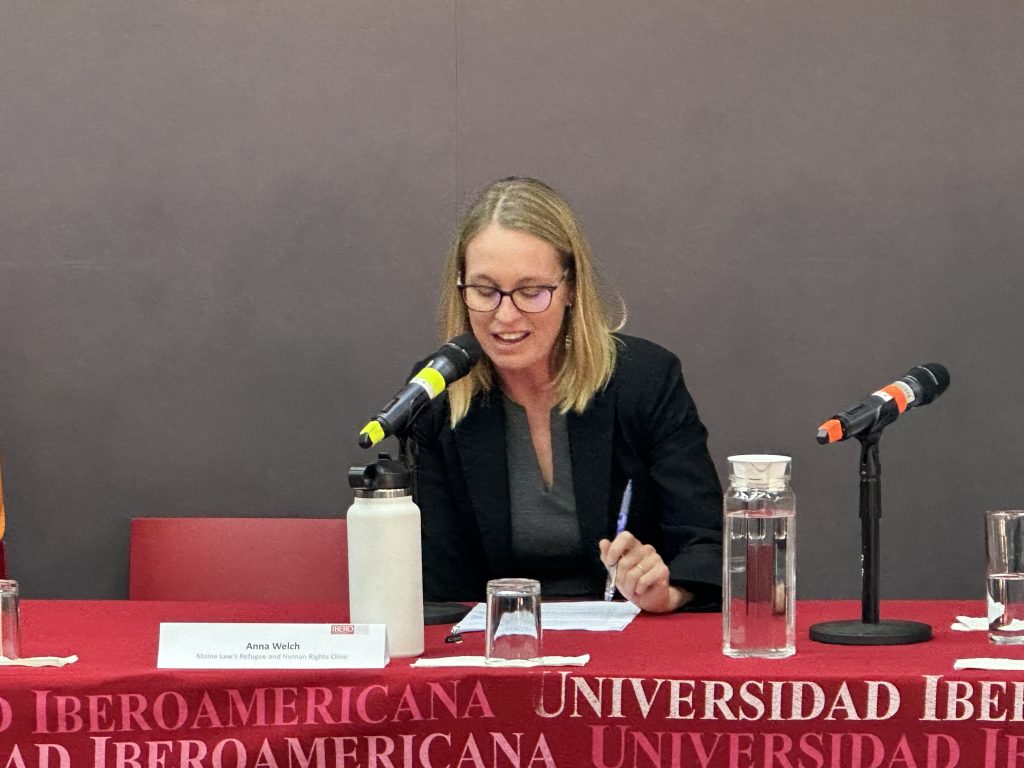
“There are no clinics regionally and few nationally doing what the RHRC does,” Leslie Person said. “They have been highly successful, not only in terms of the work they do on behalf of individuals seeking refuge, but also in training the next generation of lawyers and prompting essential conversations around immigration policy and reform. We want to support their work to allow them to expand and become that much more sustainable.”
The RHRC is one of five Maine Law clinical programs, which are staffed by student attorneys to serve low-income clients on a range of matters. All of Maine Law’s clinical programs share a common mission: to train the next generation of lawyers by promoting access to justice while meeting the acute needs of vulnerable communities. Collectively, Maine Law’s clinical programs represent approximately 400 clients each year, and they assist hundreds more through their advocacy and outreach work. Areas of law include immigration, family law, protection from abuse proceedings, youth justice, and criminal law. Other areas of legal services include bankruptcy, civil rights, public benefits, consumer law, housing, small claims, protective custody, wills/estates, power of attorney, among several other issues. Student attorneys represent clients at both the trial and appellate levels in state and federal courts and before several administrative agencies. Students also engage in a wide range of outreach, policy, and impact work.
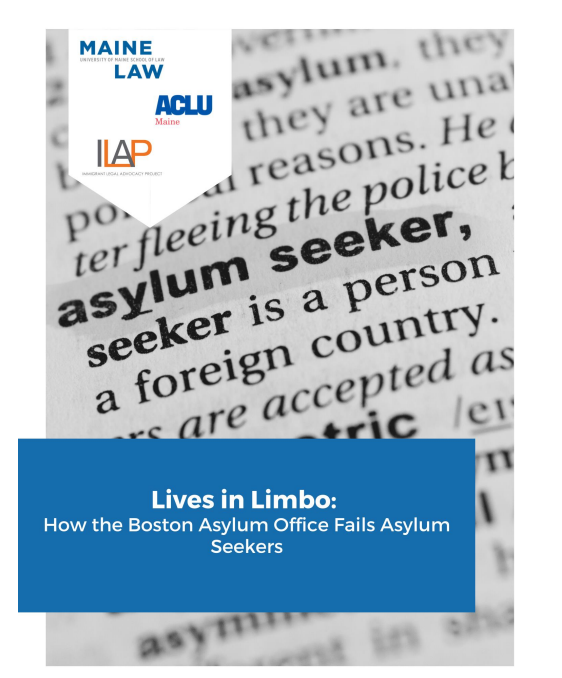
“Within our clinical programs, we serve many sectors of Maine’s population, with a focus on some of our most vulnerable individuals,” Christopher Northrop, Managing Co-Director of Maine Law’s clinical programs, said. “Asylum-seekers and refugees are often made vulnerable when their legal status is uncertain. At the same time, they are an essential part of our state, and the work the RHRC does every day protects Maine immigrants at both individual and communal levels so that they can flourish here.”
Wells Person, who grew up in Texas where attitudes and policies around immigration differ considerably from the Northeast, said Maine has the chance to be a leader in terms of advancing the rights of its immigrant population. Fostering the work of the RHRC and similar projects is a vital part of that vision.
“Maine is often a national bellwether in many different areas for the country,” he continued. “Maine has already done a great job of welcoming and settling immigrants with very limited resources. We want to show how fostering immigrant communities can have a positive and vitalizing impact, but projects like the RHRC need to have substantial resources to do that.”
Maine Law President and Dean Leigh Saufley said the gift will be instrumental in growing the RHRC’s reach and supporting students in their education and professional development.
Our clinical education is a flagship program at Maine Law,” Saufley added. “Every student that graduates from Maine Law does so with a solid foundation of experiential learning, either from participation in our clinics or our externship programs. We are so thankful to the Persons for their generous donation and the trust they are placing in the RHRC and Maine Law. Maine Law has long been a vanguard for justice in the state and beyond. This gift helps cement that legacy by expanding our capacity for service, education, and outreach.”





